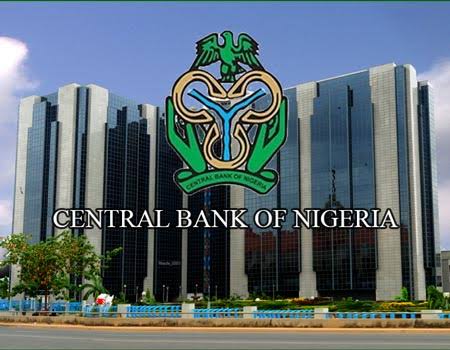The Central Bank of Nigeria has warned genuine bank customers that the Bank Verification Number issued by the apex bank in collaboration with the Nigeria Inter-Bank Settlement System, does not expire after a ten-year period.
According to a statement issued on Wednesday by the CBN’s Acting Director, Corporate Communication, Isa AbdulMumin, contrary to the claims by fraudsters that the BVN issued by the Bank in collaboration with the Nigeria Inter-Bank Settlement System expires after a ten-year period, “we wish to clarify that the BVN issued in Nigeria has no expiry date.”
According to the apex bank’s image maker, “once a customer’s biometrics have been captured and enrolled in the database of NIBSS, the BVN remains for life. However, the Regulatory Framework for BVN issued by the CBN in 2021 stipulates that customers can only change their records due to certain conditions spelt out in the document and after being cleared by relevant authorities.
“Therefore, we urge bank customers in the country, especially those whose biometrics have been captured by the system, to continue using their unique identifiers as they last their entire lifetime.
“Be guided accordingly.”
The CBN said last week that over 57 million citizens have enrolled for its BVN as at March 31, 2023.
This represents a 5 percent increase compared to the 54.65 million BVNs enrolled in the first half of 2022.
Godwin Emefiele, CBN governor, spoke on the challenges of the apex bank and key policies introduced to make payments faster, at the 34th seminar for Finance Correspondents and Business Editors in Calabar on Tuesday.
He said the CBN had also continued to collaborate with relevant stakeholders in the adoption of payment system instruments and channels.
He said some of the channels introduced were the BVN, real-time gross settlement system (RTGS), regulatory sandbox, open banking, and the CBN digital currency (CBDC), the eNaira. According to Emefiele, Nigeria is currently the first country on the continent, and second in the world to have fully launched a live CBDC.
“The payment system regulation and management role of the CBN is very critical in the achievement of its primary mandate of price and monetary stability conducive for inclusive and sustainable economic growth.
“It is also important for ensuring a stable, safe, and efficient financial system in Nigeria.
“Cognisance of the implications of the risks that accompany digital innovations and technological advancement globally, the CBN has continued to ensure a healthy balance between the adoption of latest innovations and development of reliable mitigants to the associated inherent and operational risks to both the payments system and the rest of the economic sectors in Nigeria,” he said.
Emefiele said the implementation of CBN’s initiatives in the banking sector had been slow due to several issues in the industry.
He said the CBN was dealing with weak social infrastructure, cyber fraud, and unlicensed companies that affect the effective operation of payment platforms.
The apex bank governor noted that payment was highly reliant on stable telecommunication networks and power infrastructure.
“These are currently not optimal in Nigeria, thus, impacting the stability and resilience of the payments system.
“Some entities have continued to exploit access to information technology to engage in regulated activities without the appropriate licenses and authorisation.
“The activities of fraudsters continue to threaten the resilience of the payment platforms. The confidence of the public is impacted by these activities.
“However, the collaborative effort between the CBN and other players in the industry is helping to curtail the nefarious activities of these fraudsters,” he said.
On mitigating cyber fraud and other related crimes, the CBN governor said integrating the BVN had helped the financial industry in investigating crimes.
He said incorporating the BVN in know-your-customer requirements, had also helped to ease the constraints associated with poor identification of banking customers.
“We have continued to support the aggressive enrollment of prospective banking customers in the informal sector onto the BVN system.
“With a total enrollment of 57,431,355 as at 31st March 2023, the BVN is supporting the development of credit profiles for banking customers, which will assist in improving access to credit for credit-worthy borrowers by banks,” Emefiele said.
In addition to dealing with challenges posed by cyber threats, Emefiele said the CBN had put in place the Nigeria Electronic Fraud forum payment card industry data security standard; financial industry cybersecurity fusion centre, amongst other initiatives.
“With these initiatives in place, the CBN has demonstrated irrevocable commitment to ensuring the stability and safety of the Nigerian payment system.
“Accordingly, we shall continue to deepen our oversight of the activities of operators in the payments system as well as ensure full compliance with regulations. In this regard, examiners and supervisors would continue to ensure that services delivered by participants meet required security standards,” he added.

